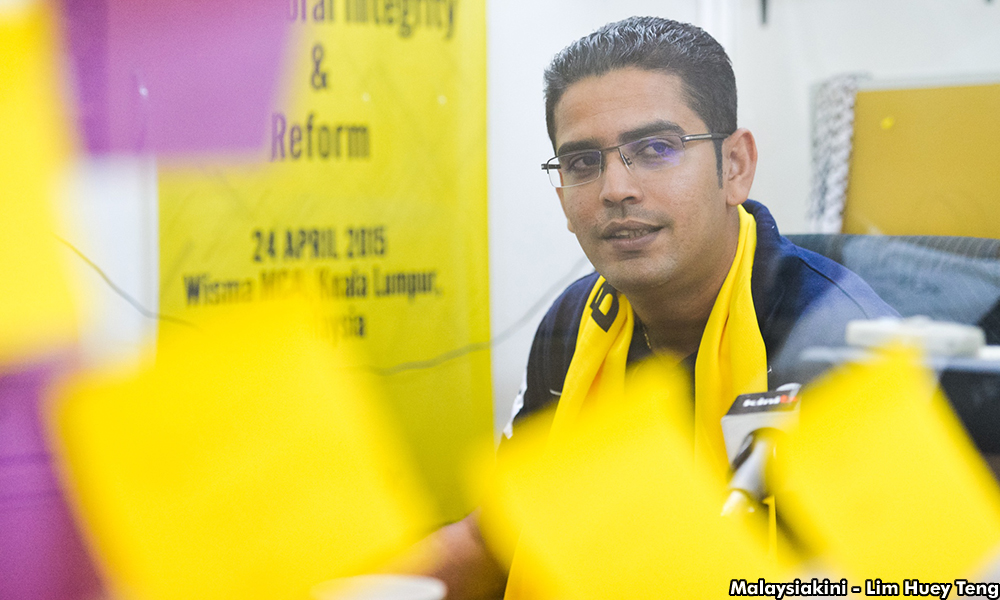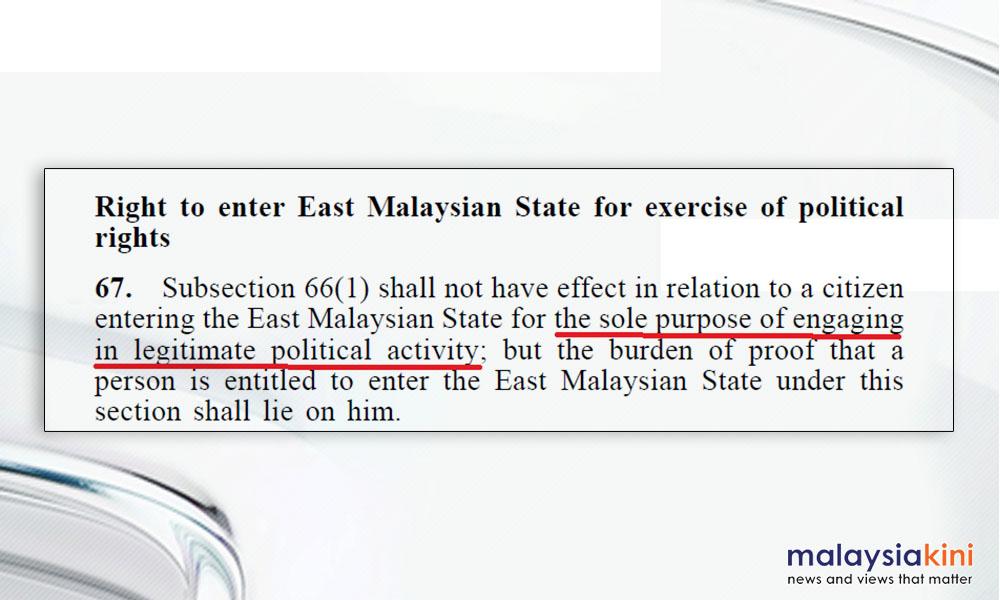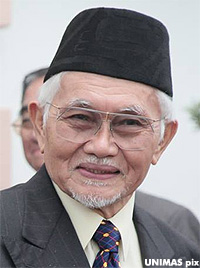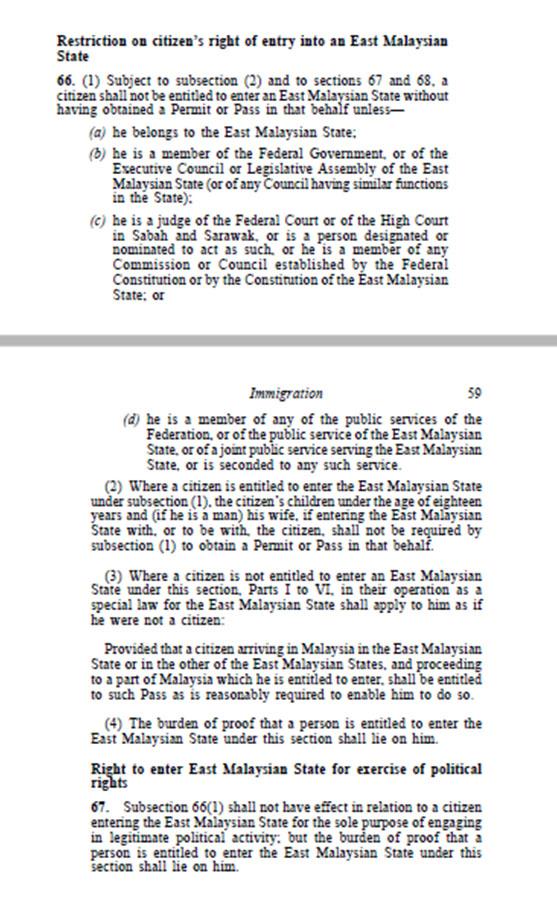COMMENT For many Malaysians, not just Sarawakians, Adenan Satem probably feels like the best material we need for a prime minister - visionary, inclusive, open-minded, no-nonsense, pragmatic.
He is clearly more than an Abdullah Ahmad Badawi. Granted, no one can guarantee that his reforms will not be rolled back after winning a landslide, like Abdullah's.
Nevertheless, Adenan has brought more changes in his first two years as Sarawak chief minister than Abdullah did in his first five months as the prime minister, before getting a personal mandate.
But what kind of reformist is Adenan? Is he strengthening institutions for Sarawak so that they will function well after him? Or is he a benevolent strongman whose presence is needed for the desired reforms to continue?
At the end of the day, does he affirm democracy, rule of law and human rights in and for Sarawak and Malaysia?
Take the National Security Council (NSC) Bill, for example. Once established, the NSC, which will control security matters, including territorial integrity, can have unchecked power to crack down on any state rights movement deemed hostile to Kuala Lumpur.
Yet, for all the talk of championing state autonomy, Adenan, as the new strongman of Sarawak BN, got his parliamentarians and senators to vote for the NSC Bill rather than abstaining at least.
Were Adenan's hands tied because he could not afford to be seen as challenging Najib?
 If so, the reason cannot be used on the latest deportation of Bersih 2.0 secretariat member Mandeep Singh (
photo
) at the Kuching airport on Tuesday.
If so, the reason cannot be used on the latest deportation of Bersih 2.0 secretariat member Mandeep Singh (
photo
) at the Kuching airport on Tuesday.
Long list of persona non grata
Sarawak has a long list of persona non grata, including S Ambiga, Maria Chin, Jannie Lasimbang and me (banned since April 2011), but most of them were banned during the reign of Adenan's predecessor, Taib Mahmud.
Why should a champion of reform fear an activist of free and fair elections? Does Adenan favour dirty and controlled elections instead, like Taib did?
While the naive admirers of Adenan might be surprised by the episode, the more ardent ones among his supporters may go on to defend him and say that it is the CM's prerogative.
After all, some Bornean nationalists see the deportation of West Malaysians as a manifestation of the autonomy of Sarawak and Sabah. “It's our right. We don’t need to give you any reason!"
Even if this episode is embarrassing, some may still think such arbitrary exercise of power is a necessary evil to "protect" the Sarawak people from bad influences from Malaya.
After all, many - including opposition politicians and civil society leaders - have previously applauded the denial of entry for Ibrahim Ali and Ridzuan Tee Abdullah.
Instead of fighting bigotry head-on with Sarawak's glorious spirit of inter-communal harmony, they think as if Sarawak is trapped in a pre-internet era, such that messages cannot be conveyed without the physical presence of the messengers.
Perhaps for those who support such deportation, all the great things in and about Sarawak - autonomy, inclusiveness, open-mindedness towards religion and ethnicity - can only and must be defended by means of authoritarianism.
But the issue at heart is not even whether Adenan supports freer and fairer elections, and hence, greater degree of democracy and accountable government for Sarawak.
Adenan has every right to think the status quo is good enough.
The real important question is - does Adenan have the power to arbitrarily decide who he can allow and disallow to enter Sarawak?
Before you accuse me of dishonouring the Inter-Governmental Committee Report and the Malaysia Agreement, let me be very clear - despite being a victim of the abuse of Sarawak's immigration control, I am not opposing the power of Sabah and Sarawak on internal immigration control.
Chief ministers, too, not above the law
 I am saying simply: the chief ministers of Sarawak and Sabah are not above the law. They must act according to the law.
I am saying simply: the chief ministers of Sarawak and Sabah are not above the law. They must act according to the law.
And this is what the law expressly says in Section 67 of the Immigration Act: a person cannot be denied entry if his visit is "for the sole purpose of engaging in legitimate political activity".
The immigration control, after all, was economically driven to prevent Malayans and Singaporeans from taking away jobs in the Borneo states. It is only for economic protectionism, not political protectionism. Read history, if you have any doubt on that.
 Taib (
photo
) has acted against the law. Several attempts to challenge those bans have been thrown out on technical grounds.
Taib (
photo
) has acted against the law. Several attempts to challenge those bans have been thrown out on technical grounds.
But that does not mean that Adenan should continue to unlawfully ban Mandeep, or Ibrahim Ali and Ridzuan Tee, or to unlawfully continue the ban on Ambiga, Maria Chin, Jannie Lasimbang, me and many other Malaysians from entering Sarawak, as long as we are "for the sole purpose of engaging in legitimate political activity".
No chief minister of Sabah or Sarawak is above the law, in this case, Section 67 of the Immigration Act.
If Adenan upholds the rule of law, he has to let every political activist enter Sarawak as long as their sole purpose is "engaging in legitimate political activity".
If he disagrees with their ideas, he should fight those ideas with his own ideas, so that the Sarawak people can make an informed decision, not by banishing others with whom he cannot agree.
With the deportation of Mandeep, Adenan has unleashed an important debate even before his maiden poll - on who he is and what his reforms entail.
Is Adenan a democrat who believes in the rule of law?
Or, is Adenan a "rule-above-the-law" reformist, if that phrase is not an oxymoron?
WONG CHIN HUAT is a Research Fellow with Penang Institute, the state government think-tank on public policy.


